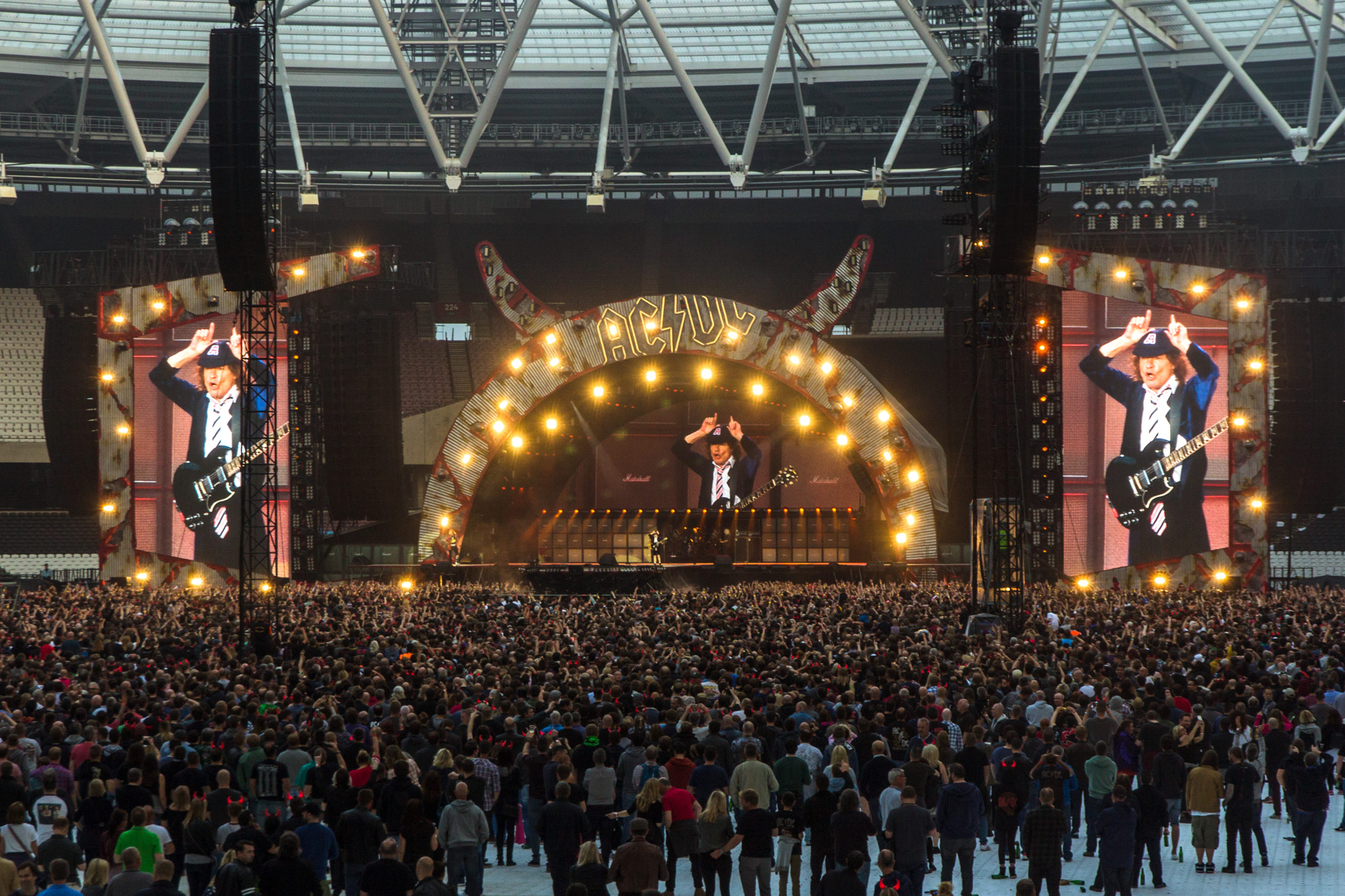The air in Cleveland crackled with more than amplified voltage on May 28. Tens of thousands of fans packed Huntington Bank Field, sensing they might be witnessing the final bow of rock’s most enduring titans.
AC/DC‘s latest tour cycle tells two stories simultaneously. The numbers paint a picture of continued dominance—over $75 million grossed and 509,000 tickets sold across 52 shows. Yet underneath those impressive figures lies a more complex narrative about aging legends navigating an industry that’s fundamentally changed since their 1970s heyday.
The Performance That Defied Time
Brian Johnson‘s voice cut through Cleveland’s humid evening air with surprising clarity. At 77, the frontman delivered “Back in Black” with the same grit that made it a stadium anthem four decades ago. Fans report Angus Young‘s extended guitar showcase during “Let There Be Rock” stretched beyond twenty minutes, proving that rock’s most recognizable schoolboy uniform still fits perfectly. This performance marked a triumphant return to American stadiums after nearly a decade away, with Johnson proving that his hearing recovery has restored the vocal power that once seemed permanently lost.
Market Realities Behind the Spectacle
Legacy rock acts face the same cruel economics as independent artists fighting Spotify’s algorithm—except AC/DC’s premium pricing creates different pressure points. Some shows struggled with ticket sales after the band skipped major markets like New York entirely. High prices and oversaturated touring schedules created pockets of resistance among fans who once considered AC/DC concerts essential experiences.
European dates sold more consistently, indicating regional differences in fan loyalty and pricing tolerance. This disparity reflects broader changes in how legacy acts navigate modern touring economics, where your willingness to pay $200 for nostalgia determines which cities get the full treatment. Meanwhile, opening acts discover that European slots cost upward of $5,000 in tour support fees, creating a two-tiered system where established headliners profit while emerging bands essentially pay for the privilege of playing to uninterested crowds.
The Silence That Speaks Volumes
AC/DC hasn’t officially announced retirement. Their silence on future plans allows speculation to flourish while maintaining creative control over their narrative. The band’s reluctance to tour without fresh material could signal a natural pause rather than a permanent farewell. “Power Up” arrived in 2020, and their historical pattern shows roughly five to six years between major releases.


























